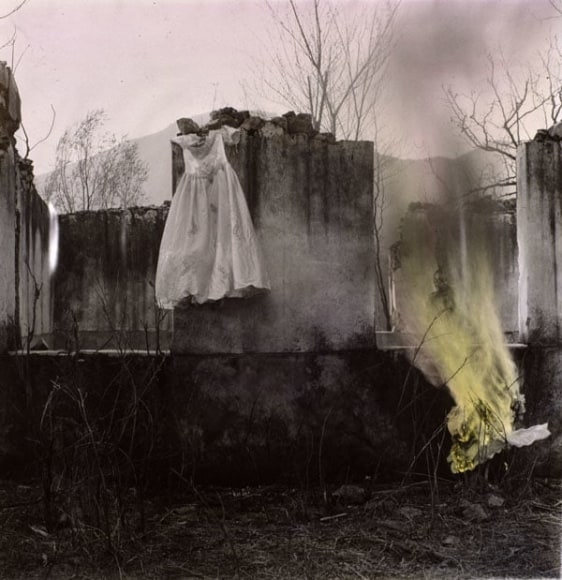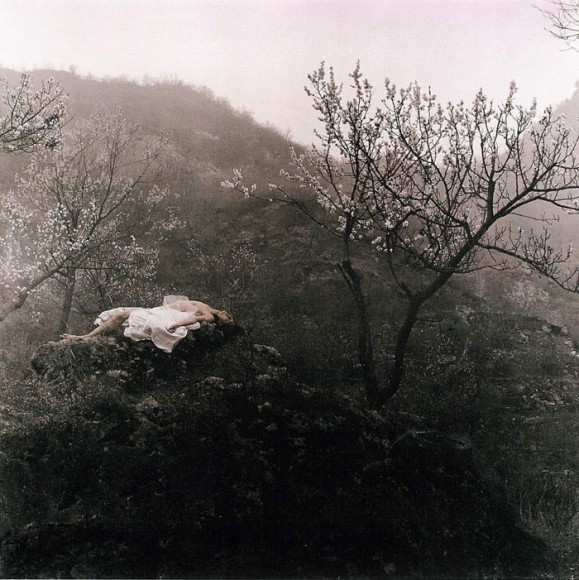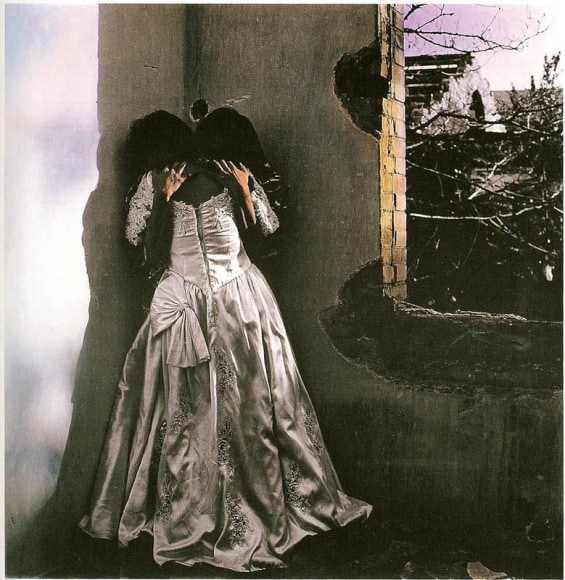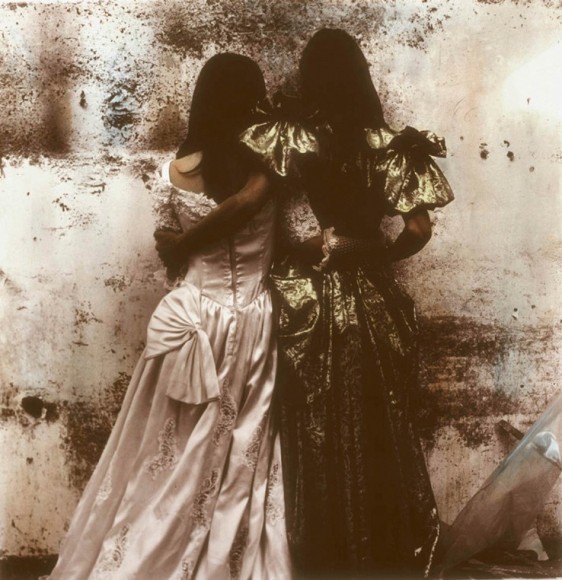In January 2001, Chambers Fine Art exhibited twelve photographs by the Beijing artist and photographer Rong Rong. Many of Rong's photographs are staged in the ruins of urban Beijing, the remains of historic homes destroyed as developers forced families out in the early nineties to make way for modern buildings. Those who live in Beijing often visually tune these ruins out. They walk past them between the newer developments, treating them as urban blind spots.
In these empty lots with half destroyed homes, the once private dwelling spaces of families are now dilapidated and exposed for public viewing. The presence of a family is felt through their absence. The crumbling walls reinforce this feeling of absence. It is to these settings that Rong adds torn photographs of movie stars and damaged posters of fashion models. Sometimes, the posters appear to have been left behind by former inhabitants, as if they where once part of the private home decor that is now made public. Other times, the effect is more like collage, where the insertion of a picture within a picture by the artist is very apparent. It's the juxtaposition of the images that provides tension to the art. The appearance of other photographs in these pictures of interior spaces turned inside out are like stand-ins for the human figure; it is their presence and relationship to their surroundings that suggest meaning.
On one level, the photographs appear to be a recording of a moment in history, like a photojournalist documentation of a scene witnessed. The gray tonalities of the black and white photograph with hand-dyed colors add to this historical effect. Li Xiantang, Beijing's most-renowned art critic, says Rong Rong's photographs "are both sad and optimistic, like a fairytale, he poeticizes reality. Rong Rong's pictures possess twisted beauty, they appear natural but contain a vivid contrast."
*Limited Edition Catalogue Available
前波画廊将于2001年1月举办了北京艺术家荣荣的个展,共展出他的12张最新摄影作品,记录了北京城市的废墟。自九十年代初期起,因改建现代楼房,许多传统房屋被拆毁,而生活在北京的人们却经常视而不理,行走在新的建筑物中,把废墟视为城市的盲点。
这些一半已经被毁坏的空屋子,曾经是私人空间的住宅,而如今却破旧不堪地呈现在公众眼中。人物的缺席,增强了破碎的墙壁的缺失感,而房屋中只剩下的 破碎的电影明星照片,和一些被损坏的时装模特海报。这些海报是曾经在此的居住者的遗留物,而如今却公众于世。有时,它们也能制造出视觉上的拼贴效果,在艺术家的照片中鲜明地表现出来。正是这种图片的并列增强了荣荣作品的艺术效果,表现出画中画的效果,将一面平淡无奇的墙改造为一个充满幻想的空间。
从某种程度上看,这些照片纪录了历史的瞬间。据有灰色调的黑白照片与手洗的颜色添加了历史感。北京最着名的评判家栗宪庭评价荣荣的摄影艺术“同时具有悲观与乐观,就好像童话一般,他把真实诗歌般地表现出来,把对美的扭曲,自然而生动地表现出来。”
*前波画廊为此展览出版了展览图录




